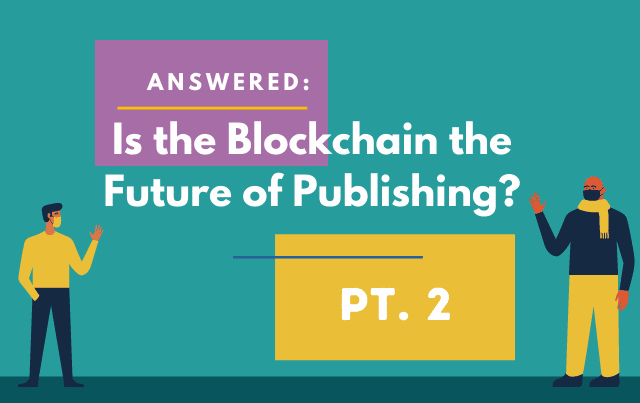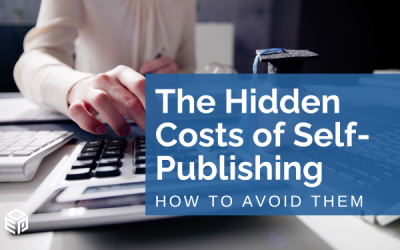Answered: Is the Blockchain the Future of Publishing? Pt. 2
Copyright
Blockchain system is perfect for publishing because it gives the ability for an author to use the blockchain to record the book’s rightful owner. Think of it like a library card inside each book that has to be stamped each time it’s checked out. It’s in the blockchain, and no one can dispute that it’s that writer’s work.
Although blockchain is not likely to stop piracy on its own or by all means all together, it can be a major “player in the fight.” For example, piracy track-and-trace addresses this in print books. This process involves embedding identifiers – like a QR code, barcode, or unique numbers – into legitimate products, entering them into a database, and scanning products to ensure they have legitimate identifiers. Blockchain makes this possible with its decentralized database that no single entity maintains.
Blockchain also records when a customer purchases a copy of a book–it’s all part of the blockchain. There are multiple projects already in the works to ensure a unique number is assigned to each digital asset using blockchain technology all over the world. It would be somewhat like an ISBN for a digital copy of a book!
Streaming Payments
Blockchain also makes it possible to make payments via an author smart wallet. This, in theory, renders banks useless. Unlike with a traditional publishing company or with Amazon, “the author is at the head of the payment chain.” The publisher gets paid immediately, and the customer only pays for what they consume. All other contributors (i.e. editors and book cover designers) get their money right away, too!
Smart Contracts
The use of blockchain smart contracts and other online tools eliminates the need for a big publishing house. Traditionally, it took these large publishing houses with the necessary finances and resources to get a book in print. Now, a sole author can self-publish.
A smart contract takes the rules that you set up in the agreement and automates those rules. When a new transaction occurs in the blockchain, you sell a book for example, the smart contract automatically applies the rules you have set up previously, and you don’t have to do anything.
Blockchain Publishing World Today
Here’s just a glimpse into Blockchain and where it is today. Sukhi Jutla’s book, Escape the Cubicle: Quit the Job You Hate, became the first Blockchain best seller when Publica.io, Alli Partner member, released the book live on Google Play. Bookchain, the Canadian company founded by Scenarex, utilizes the Ethereum blockchain to publish, distribute, and resell ebooks. “Through smart contracts, this flexible platform enables the security, traceability, attribution, and distribution of ebooks.” With Bookchain, you can read your digital books using a computer, a smartphone, or tablet and use the web browser of your choice: Google Chrome, Apple Safari, Firefox, and Microsoft Edge. You access your digital books with this link: Bookchain® Reader.
Certain companies like Bookchain do not require content creators to pay to sign up with cryptocurrency, nor do they pay you with it unless that’s what you prefer. Blockchain has the potential to revolutionize the scientific publishing industry. In 2018 Antonio Romero (Co-founder of Orvium) envisioned changing up and improving the sector “by decentralizing storage solutions, big data analytics, and cloud computing.” In addition, he saw blockchain technology could be utilized to accelerate the peer-review process significantly by creating a platform “to process, validate, and disseminate research data with an infrastructure that enables open and trustworthy, decentralized and collaborative environment.”
By Katherine Steiger for New Shelves on September 9, 2021
Original Post: https://newshelves.com/blockchain-is-it-the-future-of-publishing-part-2/




0 Comments